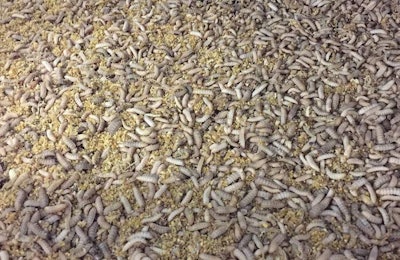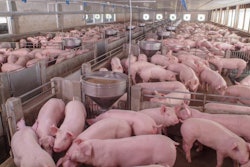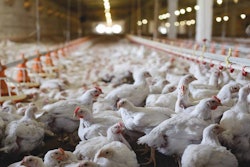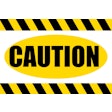
The Canadian Food Inspection Agency (CFIA) is collecting feedback this month on a new guidance document for manufacturers seeking the approval of insect-derived feed ingredients.
The agency, which has already approved insect ingredients for use in animal feed, has found that insects can be a useful source of protein and nutrients. However, the agency has also found that one insect product can vary significantly from the next depending on the species used, how it’s raised, and how the final product is processed and handled. Consequently, CFIA has opened a public consultation process to develop guidance documents for manufacturers seeking to register new feed ingredients derived from insects.
The use of whole black soldier fly larvae in feeds for broiler chickens has been approved in Canada since 2016, and for all poultry and salmonid fish since 2017. Black solider fly larvae oil was approved as an ingredient in poultry and fish feeds in June. But other ingredients are stuck in the approval process due to a lack of uniform approval requirements, according to CFIA.
A consolidated package of requirements should simplify the registration process, which “should result in better quality submissions, reducing false starts by registrants and possibly leading to the registration of new sources of existing approved ingredients as well the submission and approval of new insect-derived feed ingredients,” according to a CFIA statement.
The proposed guidance documents include standards for ingredient labels, nutritional analysis, data regarding efficacy and shelf life, and a characterization of hazards such as potential allergenicity or toxicity, or contamination by microorganisms or other foreign materials. Applications submitted according to the new guidance would be evaluated by a team of experts to ensure the safety and efficacy of the final product.
The CFIA is seeking input from commercial feed manufactures, distributors, veterinarians and industry associations by August 17.













